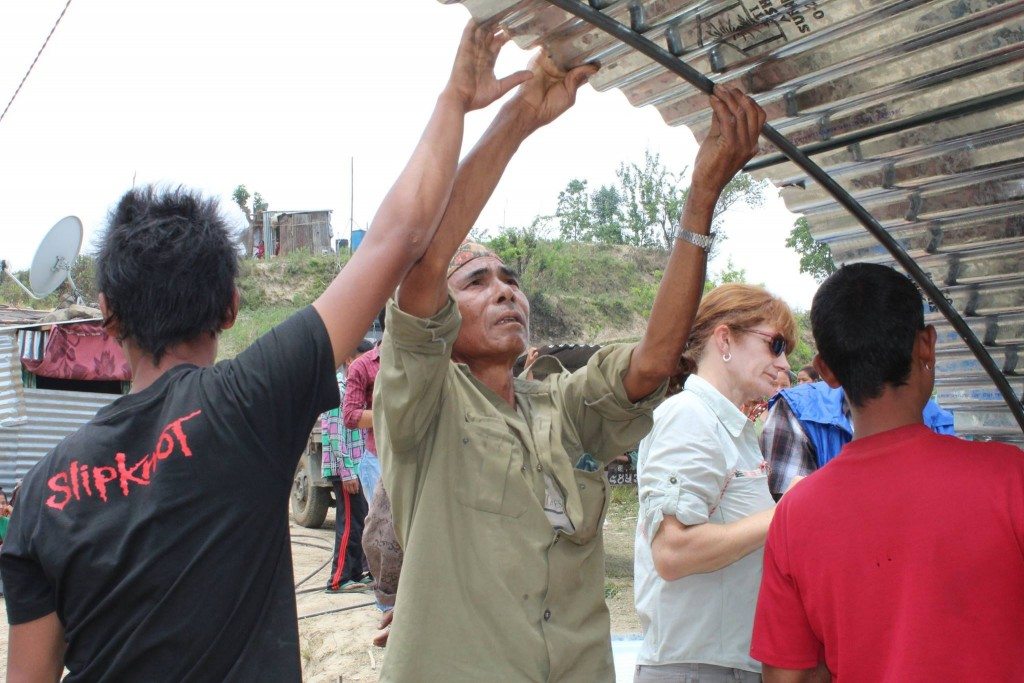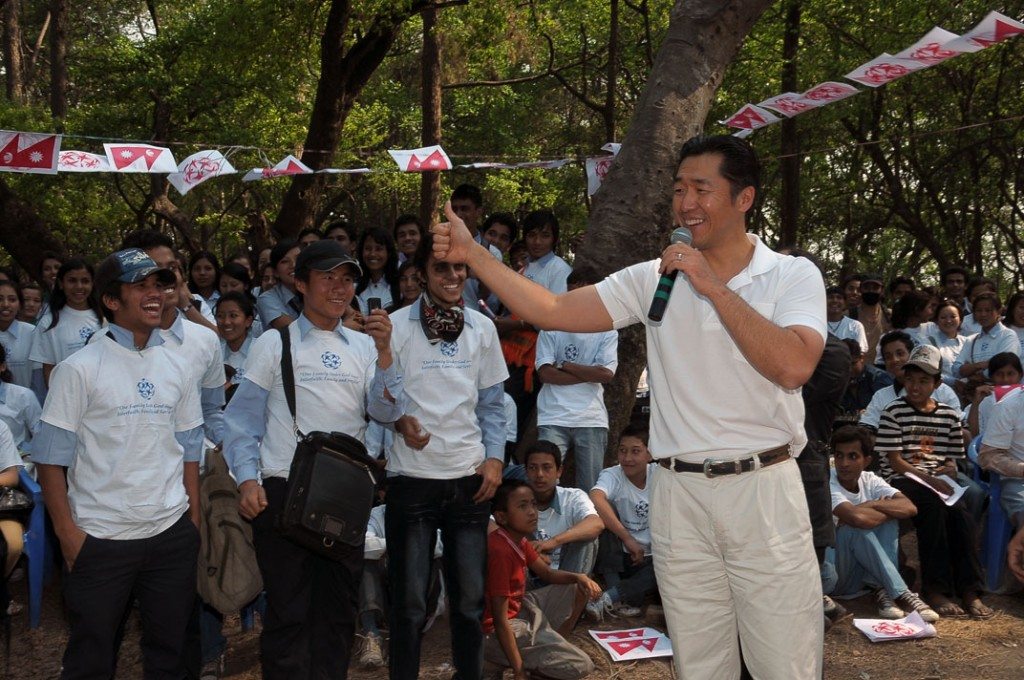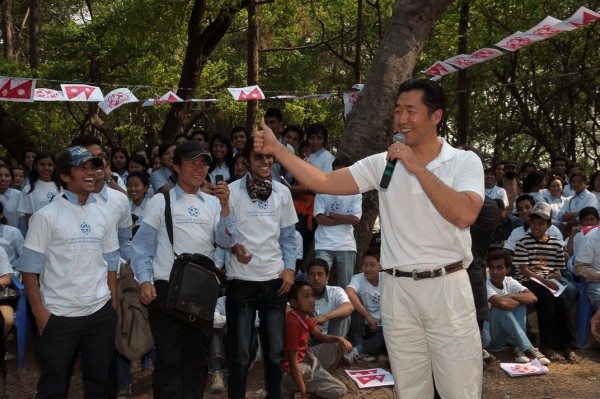
RiseNepal Volunteers, supported by the Global Peace Foundation, members of the Asia Pacific Peace and Development Service Alliance and and United Kingdom NGO Byond, raise a transitional shelter in Kathmandu for victims of the April 25 earthquake that hit central Nepal.
The idea of service has steadily gained ground around the world. While the specific nature, purpose and efficacy of the various non-governmental organizations differ, we might infer that the rise of these civil service organizations represents the importance people place in the value of service to others.
In 2012 in the U.S. alone there were approximately 1.5 million NGOs. In 2010 in India, a country with a population of 1.5 billion, there seemed to be more than 3.3 million NGOs, equaling roughly 1 NGO for every 400 people. In Russia, despite governmental restrictions on NGOs, there was a reported quarter million entities registered in the country in 2008.
Yet, without taking away the tremendous good that they might bring through their respective work, are these solutions headed in the right direction? Is there something that they are working towards that does more than provide a service or fill a need?
These are the kinds of questions we must ask ourselves as people who are working to alleviate poverty, address environmental degradation or serve the sick and the needy; addressing a myriad of challenges that we face as a global community.
In a speech many years ago to a crowd of Service for Peace volunteers, Dr. Hyun Jin Moon challenged the audience to think about service differently, asking:
When you see a homeless man on the street and you don’t know him, you most likely will pass him by without a thought. Or, if perhaps you do know him, or you’ve seen him enough to be familiar – you might think to stop and help him out – to give some money or food or offer some assistance. But what would you do if you stop and see that this homeless man is your brother?

Dr. Hyun Jin Moon addresses the importance of youth and service with volunteers at an environmental clean-up near Kathmandu, Nepal in 2010.
This question gave everyone in the audience pause and it is one that we still need to ask ourselves today.
In a similar vein, this provocative social science experiment asked us to think differently about those who are homeless:
Would You Notice Your Own Family If They Were Homeless?
The vision of ‘One Family Under God’ challenges us to engage in something as seemingly simple as service, differently – as it challenges us to do much of everything we do in life differently. It asks us, how would you approach this need differently if we are, in fact, one family under God? Do we give a man a fish to feed him for a day? Would we do the same if the person was our child, our brother, sister, aunt, uncle, grandmother or grandfather?
In ‘One Family Under God’, the natural dynamic of society would be service for one another and for the greater good. Hence, if we serve because we are family, the next question is how can our service transform our current reality into a world of ‘One Family Under God’?

